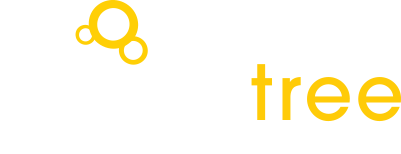Air Quality Compliance in 2024
We hope that you are well and that your new year is off to a great start. There is important news pertaining to air quality compliance, and this article will bring you up to speed!
1. As of Monday the 05th of February 2024, the SAAELIP portal, utilised for NAEIS reporting, will be inaccessible until further notice while a new system is developed. After the 05th of February, NAEIS reporting will have to be performed manually via facility-specific reporting templates. Facilities that submit their NAEIS reports on SAAELIP before the 05th of February will not be required to do additional manual reporting.
So, to avoid the challenges of this transition, we advise submitting your NAEIS reports before the 05th of February. Yellow Tree has conducted NAEIS submissions on behalf of ≈ 60 facilities each year since the inception of the system in 2016. Please do contact us asap should you require assistance with expedited reporting on the NAEIS system before the 05th of February. Alternatively, we can help you with manual reporting after the 05th of February.
2. Concurrently, the Atmospheric Emission Licensing (AEL) module of SAAELIP, referred to as SNAEL, will also be offline from 05th February 2024. A manual licensing process has been established for new applications, renewals, and variations. Should you require support with manual licensing, our team at Yellow Tree is ready to assist.
3. Furthermore, SAGERS remains unavailable for GHG reporting under the National Greenhouse Gas Emission Reporting Regulations (NGERs) for the 2024 and 2025 reporting cycles. Consequently, GHG reporting will also transition to manual methods during this period. Yellow Tree conducted manual GHG reporting before SAGERS was developed in 2020, and is well equipped to do so again in 2024 and 2025.
4. The Taxation Laws Amendment Act 2023 was published on the 22nd of December 2023. This law amends the Carbon Tax Act and extends the use of the voluntary carbon budget allowance until the 31st of December 2024. This allowance can be claimed on carbon tax payments made in July 2024 and July 2025.
Companies that burn fossil fuels in stationary combustion installations like boilers, ovens, and furnaces can potentially save hundreds of thousands of Rands by claiming this additional allowance. If you do not have a voluntary carbon budget in place, please get in touch with us for assistance in compiling and registering a carbon budget with the relevant authorities. We have secured voluntary carbon budgets on behalf of several companies, and these companies have successfully claimed the additional carbon budget allowance.
5. Interestingly, SARS has been enforcing severe penalties, for the late filing and payment of carbon tax, as far back as 2019. Late filing is penalised by 25% of the tax liability, and late payment is penalised by a further 25%. Interest is also levied on the amounts owing. Given the severity of these penalties, it is critical that carbon tax be filed and paid before the due date of the penultimate working day of July each year. Please contact us to calculate, or review, your carbon tax liability so as to avoid penalties, and to ensure that you are obtaining full advantage of the available allowances. We do not want you to overpay!
6. In response to growing pressure for South African companies to “decarbonise” we are able to help by developing tailored decarbonisation strategies for businesses seeking to reduce GHG emissions across their operations and supply chains. As chemical engineers who deeply understand the South African fuel mix, we would love to compile a decarbonisation strategy for your business.
7. Lastly, in a fascinating High Court judgment that was handed down in 2023, a well-known South African company was fined R8 million for transgressing the Minimum Emission Standards (MES) that are prescribed in G.N. 893 of 2013. This landmark case highlights the intensified enforcement of air pollution regulations in South Africa and reinforces the “polluter pays” principle that is embodied in South Africa’s suite of environmental laws.
We feel that this case highlights the need for accurate stack sampling, so that you always know where you stand, and can defend your emissions results. We have never provided the cheapest stack sampling service, but have instead always focused on the highest accuracy by hiring exclusively chemical engineers as field scientists and report writers, and by purchasing state of the art measurement equipment.
We trust that this gives you a helpful overview of the changing space that is air quality in South Africa. We are here to help, so please do contact us.
